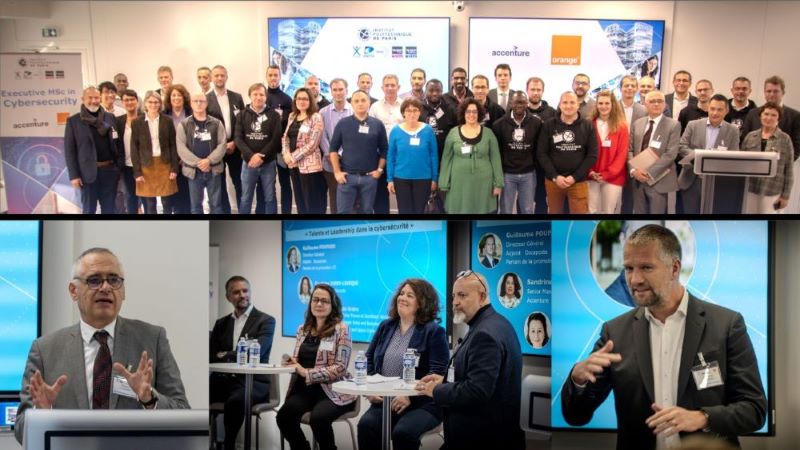The bright prospects of the Executive MSc in Cybersecurity

Launched in 2022, the program responds to strong demand from businesses for whom digital sovereignty has become a priority and a strategic issue due to the increasing number of cyber-attacks.
According to the French National Agency for Information Systems Security (ANSSI), 69% of organizations targeted by attacks in 2023 were businesses. Meeting the challenge of IT security therefore requires more recruitment and an increase in skills in cybersecurity, data science and AI. Orange estimates that by 2025, 75,000 positions will need to be filled in the sector in France.
“Our distance learning and classroom training lasts one year and is aimed at high-level operational managers with a minimum of three years' professional experience in the IT professions who supervise or will supervise cybersecurity teams,” explains Thomas Clausen, Academic Director of the program. “Its strength lies in combining the expertise of IP Paris' research professors with that of Orange's cybersecurity experts,” he continues.

Promotion Executive MSc in Cybersecurity 2023
Architect or governor
The program, whose current class is sponsored by Guillaume Poupard, former DG of Anssi and now DGA at Docaposte, is compatible with participants' professional activities throughout the course. It enables participants to acquire cross-disciplinary, operational skills, covering all technological and managerial aspects of cybersecurity.
The Executive MSc in Cybersecurity offers a core curriculum covering the fundamentals of cybersecurity, such as modern cryptology, web security and applications, and data protection regulations, followed by a choice of two specializations: as a Governor, responsible for developing and managing governance strategy and compliance, or as a Cybersecurity Architect, responsible for designing security architectures and managing operational security.
“I opted for the Architect specialization in order to expand my knowledge”, explains Grégory Medrano, who completed the course in 2022. Originally a network engineer, he joined Orange in 2006 and became Lead Architect in 2012. Since 2017, his career has focused entirely on cybersecurity.
“I chose the Executive MSc in Cybersecurity for its academic excellence, the quality of its lecturers, whether researchers or teachers,” he continues. Among the program's strengths, he also cites the contribution of cybersecurity professionals, notably those from Accenture and Orange, a broad, cross-disciplinary vision covering subjects such as security management and crisis communication, for example, and finally the incredible human adventure that this year has represented.
Laureen Mougel is also a member of the first class of the Executive MSc in Cybersecurity. Responsible for information systems security within the IT Department at Orange France, she opted for the Governor's specialization. She praises the well-designed programs, which alternate theory and practice, “with business speakers and consultants sharing their skills and feedback, as well as researchers with cutting-edge expertise”.
"The face-to-face seminars, dedicated to the security supervision professions, enabled us to delve more deeply into all aspects of security, with an emphasis on attack and surveillance techniques. Security incident management and the application of effective communication techniques were also very instructive. In today's digital environment, the ability to manage these incidents with transparent and rapid communication is essential,” she adds. And, like Grégory Medrano, Laureen Mougel praises not only the demanding nature of the training, but also the solidarity between all participants.
"The face-to-face seminars, dedicated to the security supervision professions, enabled us to delve deeper into aspects of security, with an emphasis on attack and surveillance techniques. Security incident management and the application of effective communication techniques were also very instructive. In today's digital environment, the ability to manage these incidents with transparent and rapid communication is essential,” she adds. And like Grégory Medrano, Laureen Mougel notes the solidarity between all participants.
The program goes far beyond the skills required to become an information systems security manager, security architect, technical or organizational security auditor, or cybersecurity consultant. “It also enables you to develop your professional network and open up career prospects,” emphasizes Thomas Clausen.













